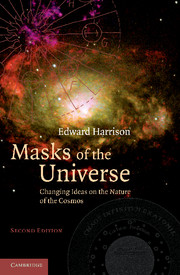Book contents
2 - The Magic Universe
Published online by Cambridge University Press: 27 October 2009
Summary
“History is only a pack of tricks we play on the dead,” said Voltaire. By scanning history, peering into prehistory, we seek the ancestral incunabula. With meddlesome curiosity we turn over stones, dig up bones, and expect the dead of long ago to forgive the tricks we play.
At least we have learned not to portray early human beings as shambling Nibelungs, or as Hobbesian ogres, “solitary, poor, nasty, brutish, and short.” Doubtless the forgotten people of the distant past were thoughtful beings, with a spring in their stride and light in their eyes, who ornamented their bodies, bedecked their dead with flowers, danced, sang, laughed, cried, and, like us, had their joys and sorrows. They lacked our knowledge, yet had instead their own, perhaps more than we can ever realize.
Little is known of the early people who lived hundreds of thousands of years ago. Their lifestyle was certainly primitive by our standards and even by the standards of the African Bushmen and Australian Aborigines. Other than a miscellany of skulls and skeletal remains, tool kits, artifacts, and evidence of diet, we have precious little information on how the early people lived, and none whatever on how they thought. But we know they had brains as large as ours and we may safely assume that their brains, like ours, were fully functional. The universe in which the early people lived, or thought they lived, is lost forever, and all our reconstructions are possibly in error.
- Type
- Chapter
- Information
- Masks of the UniverseChanging Ideas on the Nature of the Cosmos, pp. 15 - 28Publisher: Cambridge University PressPrint publication year: 2003

